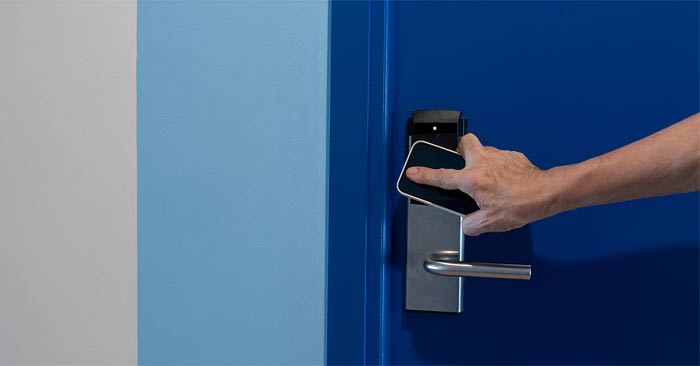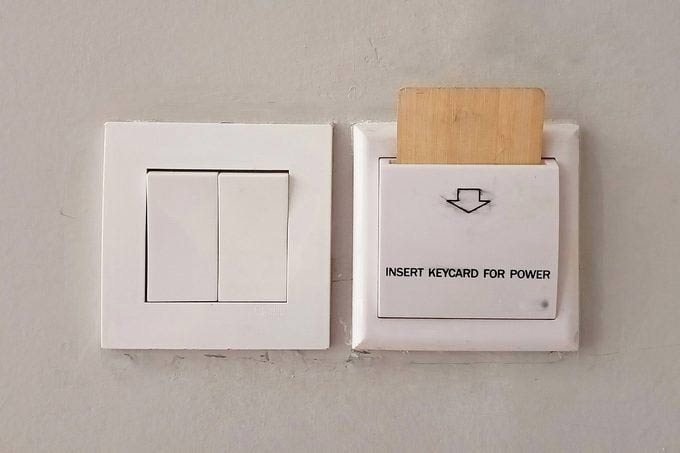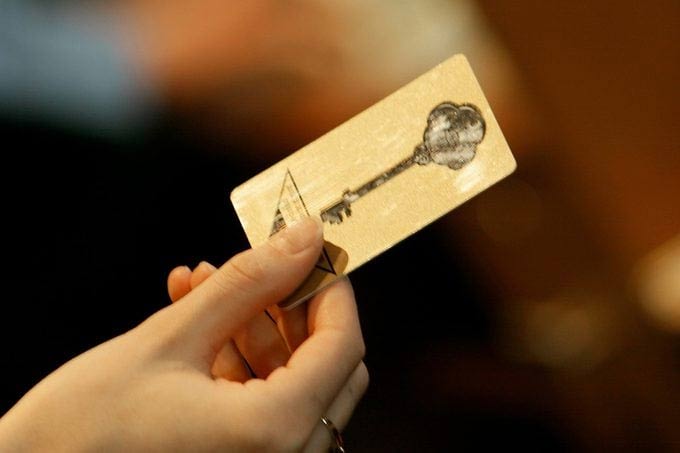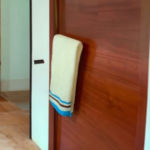Think back to the last time you checked into a hotel. Chances are, you handed over your credit card to cover incidentals and watched as the receptionist furiously typed away. Then, you likely received a credit card-sized key card tucked inside a paper envelope. Simple, right?

But what happens after you leave the front desk? If you overlook a very simple step, you could be making a big mistake when it comes to your safety. Here are some common mistakes to avoid when using hotel key cards that could put you at risk.
Common Mistakes When Using Hotel Key Cards
Daniel Loo, owner of North Star Group, a Texas-based company providing security consulting and safety assessments, warns that “leaving the key card in the envelope, which has your room number on it, essentially gives someone else both the ‘key’ and your ‘address.’ He has consulted for both independent hotels and major hotel brands on safety procedures. “If the card is lost or stolen, unauthorized entry becomes almost effortless for someone with malicious intent.”
How Serious Is This Issue?
Hotel crime statistics are difficult to pinpoint. Condé Nast Traveler magazine reports that victims of hotel theft often don’t report the crime to the police, and hotels are not required to publicize crimes that occur on their premises. Additionally, police databases don’t always categorize theft statistics by type of dwelling. However, a comprehensive study by Ball State and Florida International universities found that 38% of hotel thefts occur inside guest rooms, not in common areas.
Keeping your room number discreet is so important that hotel staff are careful to protect this information, even if you don’t realize they’re doing so. “Most reputable hotels train their staff to write down room numbers discreetly and avoid saying them aloud to protect guests’ privacy and safety,” says Loo.
Even the most casual mention of your room number can be overheard—for example, at the bar or in the lobby with friends or family—and could be cause for concern. “Opportunistic criminals often act on overheard information,” Loo explains. “Keeping your room number discreet is a basic but important step in ensuring your personal safety.”

How Do Hotel Key Cards Work?
According to Joshua McKenty, an expert in AI, cybersecurity, and enterprise technology and co-founder of New York-based Polyguard, key cards can come in various forms: magnetic stripes, Bluetooth, Radio-Frequency Identification (RFID), or Near Field Communication (NFC).
Of these, NFC is favored by many security experts. “NFC has the strongest security features and has the potential to allow guests to use their smartphones or smartwatches as key cards instead of requiring a physical card,” he says.
While this type of key is becoming increasingly popular due to not requiring a physical card (and those pesky envelopes with room numbers), many hotels still use RFID key cards, relying on door readers to recognize the card’s unique code and unlock the door when the code is matched by tapping or holding the card against the reader.

How Should You Store Your Hotel Key Card?
First, get rid of the envelope with your room number on it. Then, according to McKenty, the best advice for storing your key is something anyone can do: “Hotel guests should treat their key cards like their credit or debit cards—keep them secure and discreet.”





































